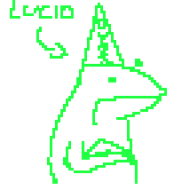'Game' VS 'Play': Does It Really Matter?
October 31, 2024
If you’ve been following my blog for some time now, you can probably tell I read a decent amount of game design literature. (I don’t practice the things I learn about as much as I would want to, but that’s a conversation for another day.) A theme I see repeated very frequently regardless of the book I read is the attempt to define what is “A Game” as opposed to “Play”, which surprised me when I first came across it.
Game Design books have a habit of trying to make new definitions for every game-related term under the sun regardless, but I chalk that up to the field’s comparative infancy: because there’s no source of “centralized truth” for our usage of game design terms, a book that attempts to analyze these terms with a microscope would understandably need to explain what it is they’re actually trying to analyze. So, it is not surprising when the first chapter of pretty much every book I pick up discusses what is “A Game” at great length. What did surprise me, however, is how many books then follow up a definition of the term “Play”, and tend to define it very differently from the term game. (Sometimes one term might reference another, but the terms are typically only tangentinally related.)
The reason I wasn’t expecting this was because english is not my mother tongue. I speak it regularly - not that I have too much of a choice when the digital landscape assumes a mastery of english - but I grew up speaking Hebrew and Spanish. In both of my “primary” language, the words Game and Play come from the same root - Mishak/משחק and Lesahek/לשחק; Juego and Jugar. Friends of mine informed me the same is true in other languages, such as Japanese (Asobi/遊び and Asobu/遊ぶ ) and German (Spiel and Spielen), which raises the question of why this is oft discussed as such a fundamental question to the field of game design.
The answer seems to be because most game design literature that I can access is written in English, and so the people who wrote it are primarily english-speakers. These people speak english as their mother tongue, so the way the language frames different concepts gets subconsciously baked into their view of the world. There’s a lot of academic discussion regarding the Sapir-Whorf Hypothesis (whether or not language affects the way we think), way more than I’d be comfortable summarizing in a singular blogpost, but while it’s generally agreed that language’s limitations can still be bypassed it’s interesting to see the ways that our vectors of communication do affect our thought processes. I wonder what shape this terminological discussion would take if our lingua franca was anything other than english - if it was a language with gendered nouns, would the gendered status of the word “game” be analyzed? Would a language with symbols representing whole words like Japanese lead to the shape of “game”s symbols be analyzed for its stroke count or direction?
Generally I am of the thought that the way we define a certain idea matters less than how the actual idea works in practice; it’s interesting for academic purposes (and believe you me I am a sucker for unnecessarily convoluted discussion) but it should be put by the wayside when it starts to limit our ability to discuss and view the actual concept this term is representing. As such, I believe that the best definition for the term Game is the one brought forth by Gutschera, Garfield, and Elias in Characteristics of Games:
“A ‘game’ is whatever is considered a ‘game’ in common parlance.”
